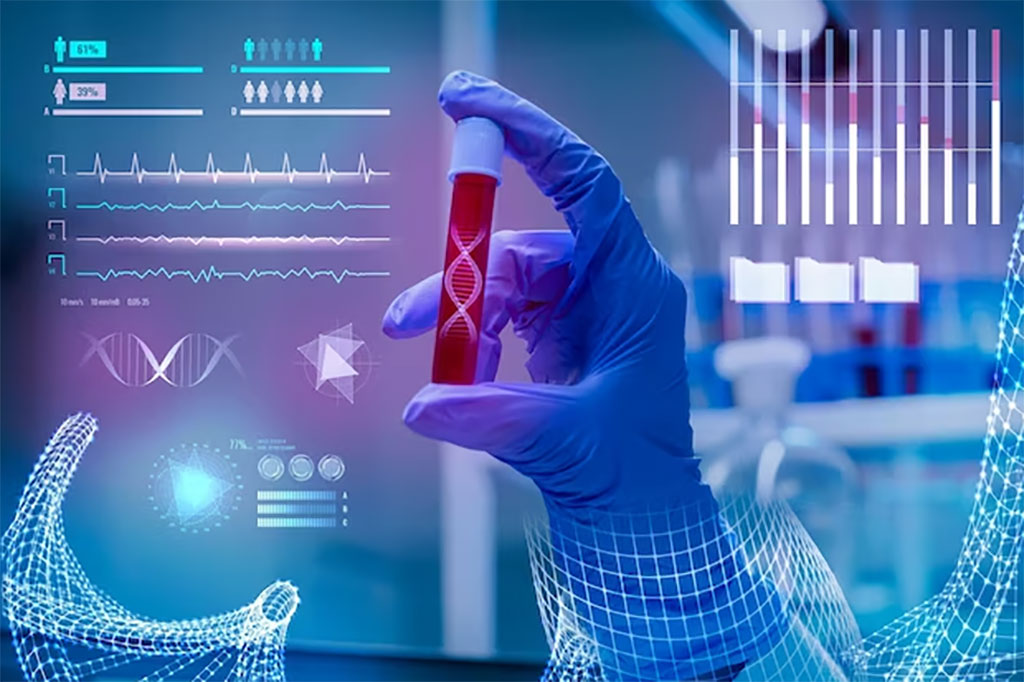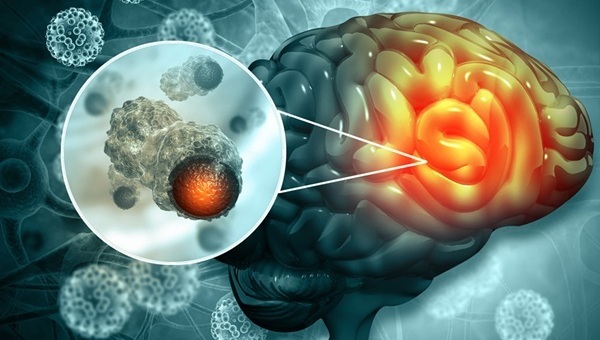Scientific Session Explores Future Role of AI and ML in Clinical Laboratory
|
By LabMedica International staff writers Posted on 26 Jul 2023 |

The enthusiasm surrounding the application of artificial intelligence (AI) and machine learning (ML) in laboratory medicine is unprecedented. This makes it crucial for laboratory professionals to acquire fundamental knowledge of these systems as they are set to become an integral part of clinical practice. At the AACC 2023 scientific session, “Artificial Intelligence and Machine Learning in the Clinical Laboratories: Fundamental Concepts, Clinical Use Cases, and Future Considerations,” attendees learned about the role that AI and ML can play in the clinical laboratory.
Considering the enormous amount of data produced by laboratories, the potential for implementing AI algorithms across all stages of the testing procedure is immense. Nonetheless, to truly harness the power of these algorithms, it's essential to understand and appreciate the functioning of such models. In the first part of the session, Christopher Williams, MD, from the University of Oklahoma Health Sciences Center (Oklahoma City, OK, USA) taught attendees some of the foundational concepts of AI and ML. Williams introduced various types of ML, a subset of AI that includes supervised and unsupervised learning. Williams laid out an understanding of the core concepts that can empower laboratorians to begin questioning why a model makes certain decisions—a skill that can prove useful for those evaluating their own models as well as for those approached by vendors with AI-enabled products.
In the second part of the session, David McClintock, MD, from Mayo Clinic (Rochester, MN, USA) discussed the tools and skills required by laboratory professionals to integrate AI/ML applications in clinical laboratories. This does not mean that laboratorians will have to become coding experts. According to McClintock, there are simple “low-code and no-code” test systems that can aid non-experts in generating AI/ML models. However, he cautioned that it is still vital to think about datasets critically from the laboratory perspective.
“This is where it is more important not to understand the coding but to understand what the model is looking for,” said McClintock. A laboratorian should be able to answer basic questions when developing and using a model such as: “What am I looking for? How do I structure my data? What are the inputs? What are the outputs?”
McClintock also described some of the obstacles hampering the wider distribution of AI/ML. “We don’t expect one group to figure all this out,” he said. Collaboration is key, and McClintock believes it is important for more people with backgrounds in data science to be brought into the laboratory in order to ensure the right support is in place from both the lab side as well as the IT side.
AI holds the power to transform laboratory medicine, although several questions remain unanswered. “There is a time and place for AI, and we’re going to learn what that is,” said McClintock. Laboratorians must be ready and begin understanding where and how AI/ML can fit in. But McClintock made it clear that “AI and ML are coming to your laboratory.”
Thomas Durant, MD, from Yale School of Medicine (Wallingford, CT, USA) discussed various key issues related to the implementation of AI/ML applications, including ethics, interoperability, and regulatory considerations. Patient safety is a key concern for Durant who emphasized that lab professionals must perform their due diligence before integrating AI tools as there can be biases within a model that could cause potential harm.
“We need to collectively as a field develop some degree of technology literacy around these new applications,” said Durant. From there, an acceptable framework can be developed for validating and verifying the performance of these tools.
Related Links:
University of Oklahoma Health Sciences Center
Mayo Clinic
Yale School of Medicine
Latest AACC 2023 News
- First-of-Its-Kind Single-Cell Clinical Microbiology Platform Wins 2023 Disruptive Technology Award
- Ground-Breaking Phage-Based Diagnostic Kit for Laboratory Tuberculosis Testing Presented at AACC 2023
- Laboratory Experts Show How They Are Leading the Way on Global Trends
- Unique Competition Focuses on Using Data Science to Forecast Preanalytical Errors
- Best Approach to Infectious Disease Serology Testing for Laboratorians and Clinicians Discussed at AACC 2023
- Breaking Research Throws Light on COVID, Flu, and RSV Co-Infections
- New Research Shows Self-Collected Tests Perform Similarly to Provider-Collected Tests for Detecting STIs
- AI Predicts Multiple Sclerosis Risk, Flags Potentially Contaminated Lab Results
- Scientific Session Explores Role of Technology in New Era of Specimen Transport
- Prevencio Presents AI-Driven Platform for Medical Diagnostic Test Development
- SARSTEDT Demonstrates Pre-Analytic Innovations for Improving Specimen Quality, Reducing TAT and Automating Labs
- World's First Large Sample Volume, Open-Assay, Super-fast, Ultra-Sensitive, and Sample-To-Answer PCR Instrument
- Vital Biosciences Unveils Revolutionary POC Lab Testing Platform
- World's Smallest POC Device for Complete Blood Count in 30 Minutes Unveiled
- General Biologicals Unveils CTC Cancer Detection Products and Automated Molecular System
- Fapon Showcases Innovative Diagnostic and Biopharma Solutions
Channels
Clinical Chemistry
view channel
Rapid Blood Testing Method Aids Safer Decision-Making in Drug-Related Emergencies
Acute recreational drug toxicity is a frequent reason for emergency department visits, yet clinicians rarely have access to confirmatory toxicology results in real time. Instead, treatment decisions are... Read more
New PSA-Based Prognostic Model Improves Prostate Cancer Risk Assessment
Prostate cancer is the second-leading cause of cancer death among American men, and about one in eight will be diagnosed in their lifetime. Screening relies on blood levels of prostate-specific antigen... Read moreMolecular Diagnostics
view channel
Light-Based Sensor Detects Early Molecular Signs of Cancer in Blood
Early cancer diagnosis is often hindered by the extremely low concentration of biomarkers present at the onset of disease. Proteins, DNA fragments, and other molecular markers can reveal cancer risk or... Read more
New Testing Method Predicts Trauma Patient Recovery Days in Advance
Trauma patients with nearly identical injuries often experience very different recoveries, even when treated similarly. Traditional assessments based on injury severity do not always explain why some patients... Read moreHematology
view channel
New Guidelines Aim to Improve AL Amyloidosis Diagnosis
Light chain (AL) amyloidosis is a rare, life-threatening bone marrow disorder in which abnormal amyloid proteins accumulate in organs. Approximately 3,260 people in the United States are diagnosed... Read more
Fast and Easy Test Could Revolutionize Blood Transfusions
Blood transfusions are a cornerstone of modern medicine, yet red blood cells can deteriorate quietly while sitting in cold storage for weeks. Although blood units have a fixed expiration date, cells from... Read more
Automated Hemostasis System Helps Labs of All Sizes Optimize Workflow
High-volume hemostasis sections must sustain rapid turnaround while managing reruns and reflex testing. Manual tube handling and preanalytical checks can strain staff time and increase opportunities for error.... Read more
High-Sensitivity Blood Test Improves Assessment of Clotting Risk in Heart Disease Patients
Blood clotting is essential for preventing bleeding, but even small imbalances can lead to serious conditions such as thrombosis or dangerous hemorrhage. In cardiovascular disease, clinicians often struggle... Read moreImmunology
view channelBlood Test Identifies Lung Cancer Patients Who Can Benefit from Immunotherapy Drug
Small cell lung cancer (SCLC) is an aggressive disease with limited treatment options, and even newly approved immunotherapies do not benefit all patients. While immunotherapy can extend survival for some,... Read more
Whole-Genome Sequencing Approach Identifies Cancer Patients Benefitting From PARP-Inhibitor Treatment
Targeted cancer therapies such as PARP inhibitors can be highly effective, but only for patients whose tumors carry specific DNA repair defects. Identifying these patients accurately remains challenging,... Read more
Ultrasensitive Liquid Biopsy Demonstrates Efficacy in Predicting Immunotherapy Response
Immunotherapy has transformed cancer treatment, but only a small proportion of patients experience lasting benefit, with response rates often remaining between 10% and 20%. Clinicians currently lack reliable... Read moreMicrobiology
view channel
CRISPR-Based Technology Neutralizes Antibiotic-Resistant Bacteria
Antibiotic resistance has accelerated into a global health crisis, with projections estimating more than 10 million deaths per year by 2050 as drug-resistant “superbugs” continue to spread.... Read more
Comprehensive Review Identifies Gut Microbiome Signatures Associated With Alzheimer’s Disease
Alzheimer’s disease affects approximately 6.7 million people in the United States and nearly 50 million worldwide, yet early cognitive decline remains difficult to characterize. Increasing evidence suggests... Read morePathology
view channel
AI Tool Helps See How Cells Work Together Inside Diseased Tissue
Microscopes have long been central to diagnosing disease by allowing doctors to examine stained tissue samples. However, modern medical research now generates vast amounts of additional data, including... Read more
AI-Powered Microscope Diagnoses Malaria in Blood Smears Within Minutes
Malaria remains one of the world’s deadliest infectious diseases, killing hundreds of thousands each year, mostly in under-resourced regions where laboratory infrastructure is limited. Diagnosis still... Read moreTechnology
view channel
Robotic Technology Unveiled for Automated Diagnostic Blood Draws
Routine diagnostic blood collection is a high‑volume task that can strain staffing and introduce human‑dependent variability, with downstream implications for sample quality and patient experience.... Read more
ADLM Launches First-of-Its-Kind Data Science Program for Laboratory Medicine Professionals
Clinical laboratories generate billions of test results each year, creating a treasure trove of data with the potential to support more personalized testing, improve operational efficiency, and enhance patient care.... Read moreAptamer Biosensor Technology to Transform Virus Detection
Rapid and reliable virus detection is essential for controlling outbreaks, from seasonal influenza to global pandemics such as COVID-19. Conventional diagnostic methods, including cell culture, antigen... Read more
AI Models Could Predict Pre-Eclampsia and Anemia Earlier Using Routine Blood Tests
Pre-eclampsia and anemia are major contributors to maternal and child mortality worldwide, together accounting for more than half a million deaths each year and leaving millions with long-term health complications.... Read moreIndustry
view channel
WHX Labs in Dubai spotlights leadership skills shaping next-generation laboratories
WHX Labs in Dubai (formerly Medlab Middle East), held at Dubai World Trade Centre (DWTC) from 10–13 February, brings together international experts to discuss the factors redefining laboratory leadership,... Read moreNew Collaboration Brings Automated Mass Spectrometry to Routine Laboratory Testing
Mass spectrometry is a powerful analytical technique that identifies and quantifies molecules based on their mass and electrical charge. Its high selectivity, sensitivity, and accuracy make it indispensable... Read more
AI-Powered Cervical Cancer Test Set for Major Rollout in Latin America
Noul Co., a Korean company specializing in AI-based blood and cancer diagnostics, announced it will supply its intelligence (AI)-based miLab CER cervical cancer diagnostic solution to Mexico under a multi‑year... Read more



















